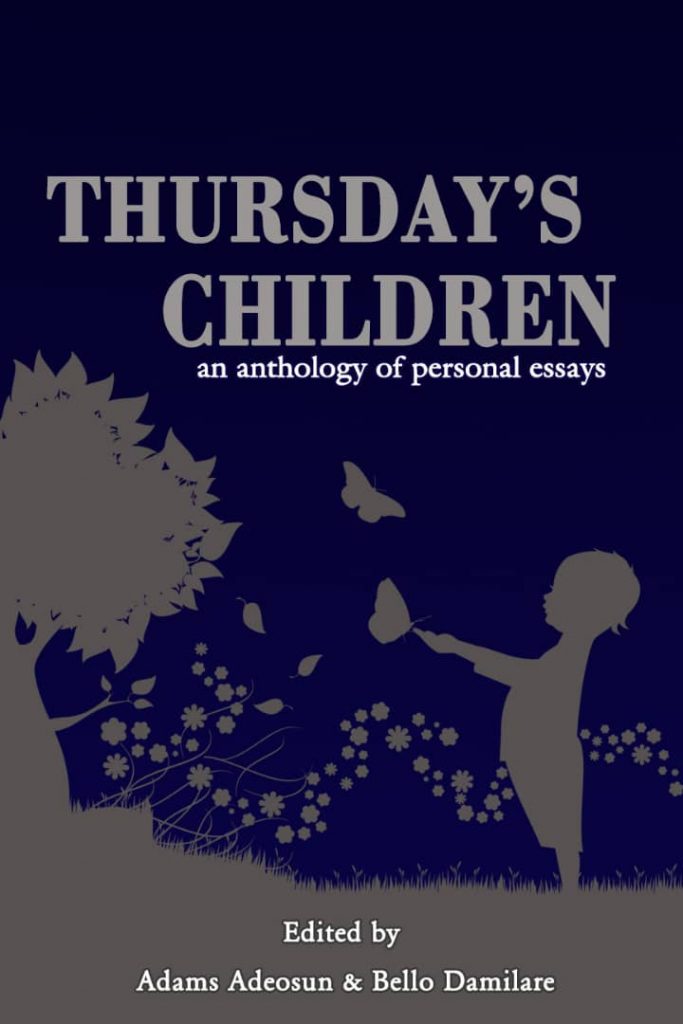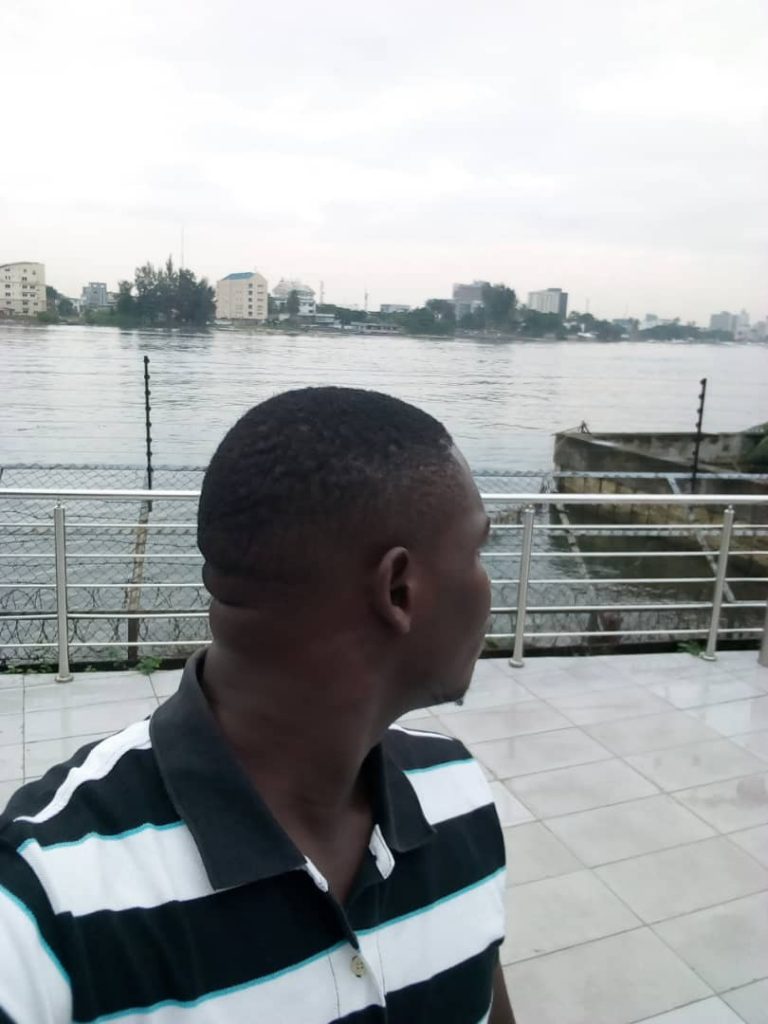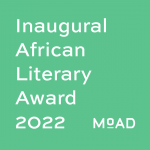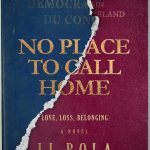
‘Are you a cultist? Are you one of them? Do you belong?’ Etc. Those were the probing questions our parish priest asked each of us, his Altar Boys, as he moved round us with the Blessed Sacrament, making us swear that we were not cultists. That was so many years ago, in our teens, when the story of teen cultism shook the very foundations of our neighbourhood and the priest didn’t want to have any one of them serving mass on the holy altar.
Reading this collection of non-fictive stories years later and reading the very titular story ‘Thursday’s Children’ by Frances Ogamba, it is only normal that I journey back in time, into memory, to recall that fateful day.
Thursday’s Children is a forthcoming anthology of thirteen (13) personal and affectionate essays edited by Adams Adeosun and Damilare Bello. The stories, beautifully written, are coming from not just writers, but writers that have read other writers. Individually, the stories shuffle from curiosity to deep, sober reflections; from melancholy to comedy, philosophy, cultural patriotism, love and becoming.
The first story, ‘Thursday’s Children’ by Frances Ogamba is both a comic and near scary tale of sorcery and cultic activities in an all-girls secondary school in southeast Nigeria. The tale effortlessly resonates with those of us who grew up in that milieu. What aided the tales of marine kingdoms’ incursions into schools then are the many rivers that surround the region, especially the River Niger, the surroundings of which the stories are rife.
Andanje Wobanda’s ‘The Singularity’ dwells on the attendant curiosity of the origin of God and earth, and the deep void created by religion and science in the understanding of the super mystery. Although, sprayed with the relieving scent of humour, one stark fact stares the reader in the face, which is the fact that we all share in this curiosity but would rather pretend to be indifferent, in order not to run mad or in order not to be “punished by our heavenly father” whose origin we must not know.
The erratic and aggressive lifestyle of a drunkard relative is interrogated by Afopeoluwa Ojo in ‘Temple of his Unfamiliar’ while in “Repeat”, Fareeda Abdulkareem explores the therapeutic power of film as an escape from depression, from workload, from the dangerous chaos that is Lagos and from falling in love. Both stories, in a way, explore different shades of addiction.
In ‘Do Dead Men Come Back Home?’ Kanyinsola Olorunisola takes on the question of reincarnation. He sees himself as having existed in times past, as being co-habited by ancestors and kindred spirits who have found resurrection in his mind. Déjà vu? Perhaps! But here is an author who feels that his middle name, Babatunde (the dead man has come back home), is not just symbolic but literal.
In ‘Leaving Babylon’, Dami Lare insists that the concept of love is defective because his experience of it was “imperfect”. Yet, gratitude is an underlying motif in this essay, the seeming angst notwithstanding.
Innocent Chizaram Ilo challenges an age-long but unwritten dogma of the mystification of the human body, the woman body, in ‘Why do we Mystify the Bodies of our Daughters?’ A table-shaking question, if I must comment and I can hear a preacher shouting that “our body is the temple of God”.
Moyosore Orimoloye’s ‘On the Disappearance of Things’, Ifeoluwa Nihinlola’s ‘Letter from Obalende’, Adams Adeosun’s ‘Catharsis’, Atanda Obatolu’s ‘Let the Sun Set’, Munachim Amah’s ‘A Father’s Love’ and Agboola Timi Israel’s ‘Churching’ are all shades of beauty and craft; challenging, indicting, probing and exposing with humour, subtlety, heartrending and powerful language, yet devoid of propaganda.
However, most writers, in this collection, found it nearly difficult to write within the confines of nonfiction, and as such, found themselves biting alluring apples from the fictive tree. It is creative nonfiction, yes, but only a handful consciously remained on the lane to write the self and personalize the tales. Hence, it is true, generally, that somehow somewhere, a nonfiction writer veers off the lane by bringing in a little fiction and vice versa.
Generally, Thursday’s Children is a potpourri of quotidian experiences flavoured with resonant metaphors, such that I can only say WAIT FOR IT! DO NOT MISS IT FOR ANYTHING!
And sincere kudos to the editors for gifting us this delightful read.
ABOUT THE AUTHOR

Rapper, Essayist, Poet and Playwright, Ifesinachi Nwadike holds a BA and MA in Literature from Imo State University and University of Ibadan respectively. A 2018 Ebedi International Writers Residency alumni, his works have appeared in The Sun Review, ANA Review, Ake Review, Praxis Magazine, Naij.com and elsewhere.
He is a 2FACE IDIBIA addict.




Average Rating